Experiencing the Spirit of Exploration
Five impressive young explorers with very different backgrounds and skillsets, were chosen from hundreds of applicants to have the experience of a lifetime on the 2020 Inspiring Explorers’ Expedition™ to the Antarctic Peninsula. Joining them in the continuing partnership was two students and a teacher from Sir Edmund Hillary Collegiate, a school based in Otara, South Auckland, New Zealand.
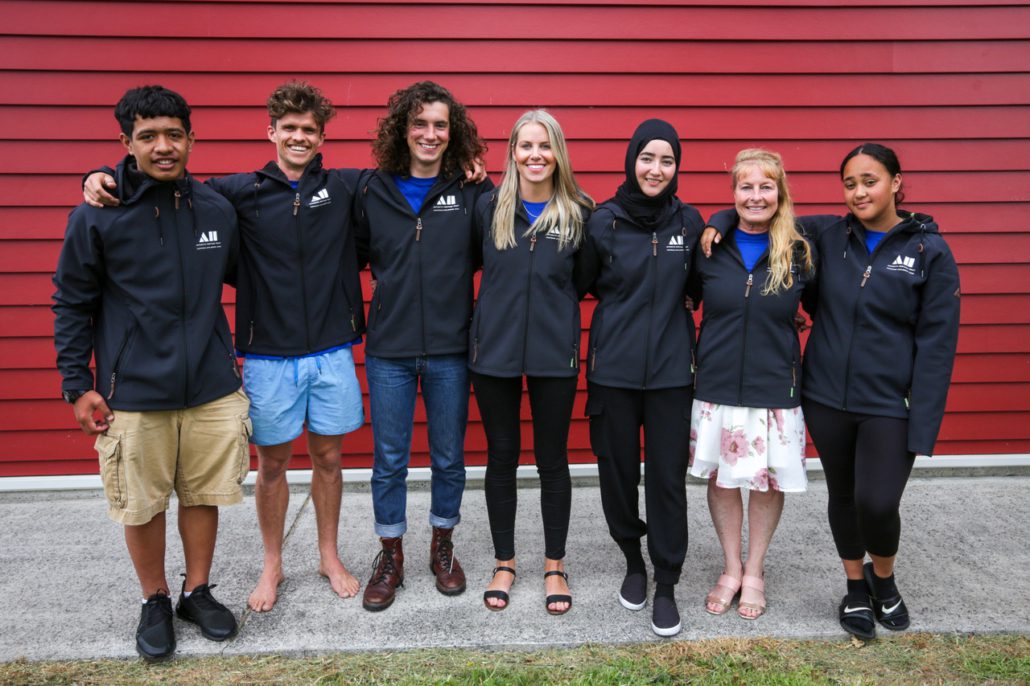 Mike Dawson/Antarctic Heritage Trust
Mike Dawson/Antarctic Heritage Trust The team are now busy working on developing their outreach programmes with an aim to inspire others to explore. They include developing content for online education programmes for New Zealand school students, 360 virtual reality (VR) and augmented reality (AR) content, artwork and photography, presentations, long-form media articles as well as a unique musical composition.
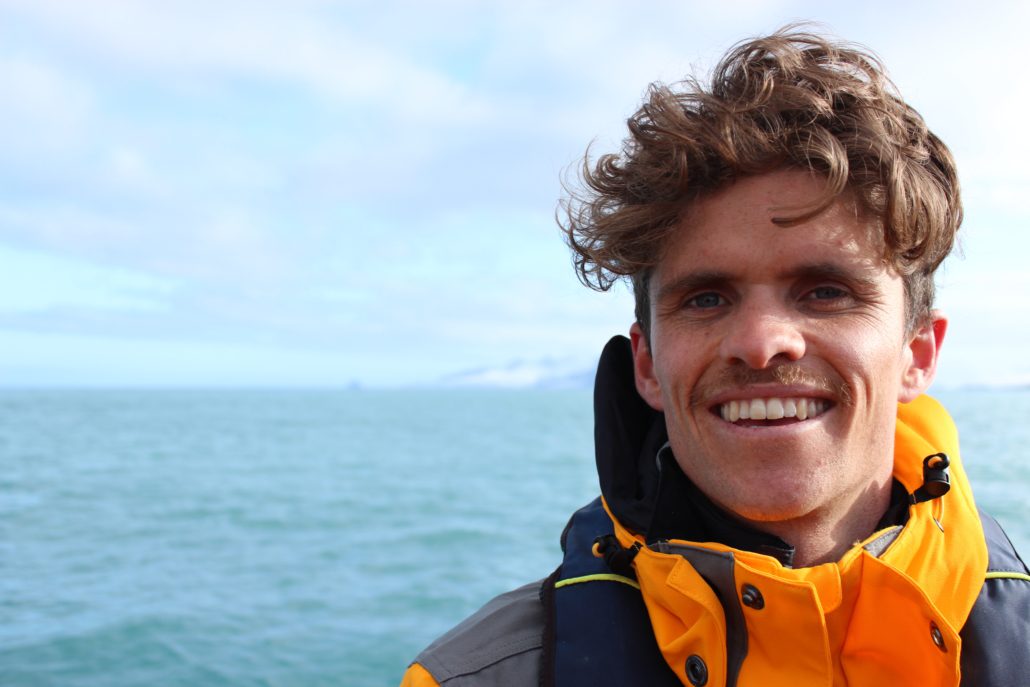 Owain John/Antarctic Heritage Trust
Owain John/Antarctic Heritage Trust Inspiring Explorer Owain
Owain John (27) of Wellington, CEO of educational social enterprise, Squawk Squad, says it was impossible to pick one highlight from the sights and sounds he experienced on the expedition. “There were so many. The scale of the ice was incredible, with huge ice mountains falling into the desolate harbours. We heard the deep rumble and booming of ice falls, not to mention animal sounds, such as the crying of an albatross overhead, or the gabble of the penguin colony. Seeing how the animals down there are not fazed by human presence was pretty surreal – we haven’t had an influence on them in the same way as we have in other places in the world.”
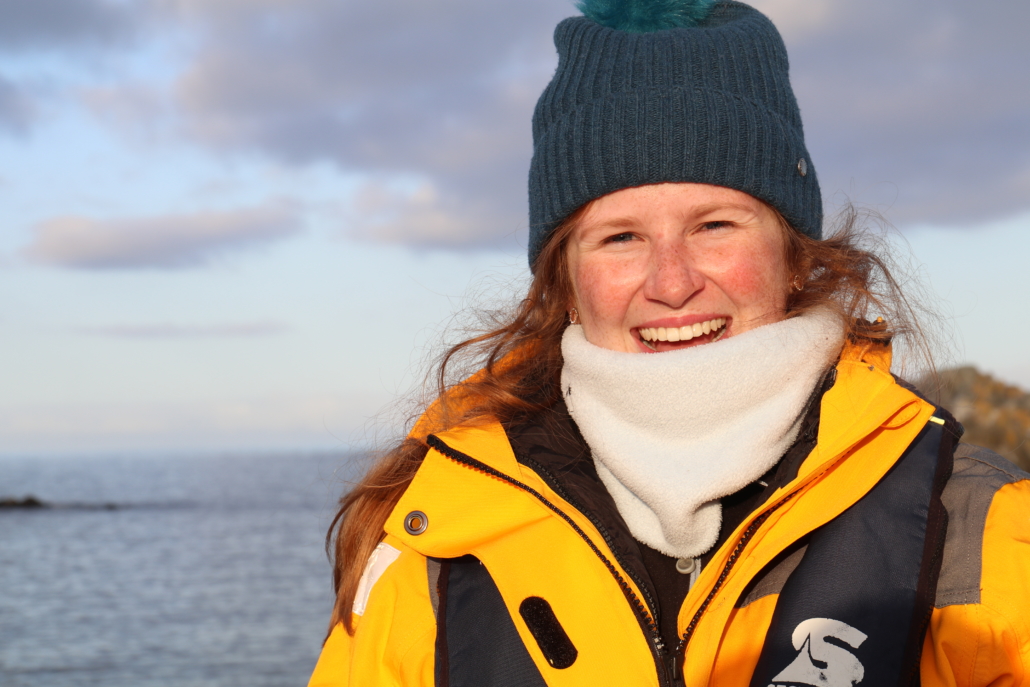 Marcus Waters/Antarctic Heritage Trust
Marcus Waters/Antarctic Heritage Trust Ihlara in Antarctica
The sounds of Antarctica had particular relevance for Ihlara Mcindoe (22) of Dunedin, a Music and Law student at Otago University, who is using the recordings of sounds she captured during the expedition as inspiration to compose three classical music pieces. “As a musician I was a bit nervous going on the expedition, but now I’d tell anyone to go for it. An understanding of the continent is relevant to everybody, whether they have a science, political, exploration and adventure, or arts background. We all have an important role to play in Antarctica’s conservation and preservation.”
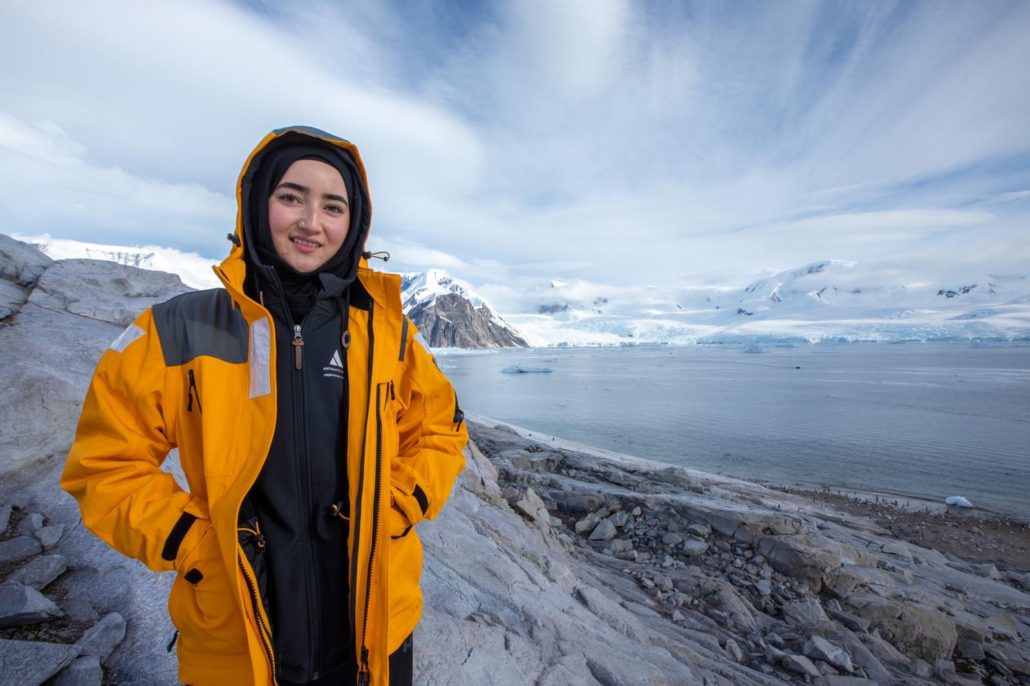 Antarctic Heritage Trust
Antarctic Heritage Trust Sadra in Antarctica
Sadra Sultani (19), a Law and Political Science student at University of Canterbury was entranced by the continent and spent time reflecting on the historic explorers. “Even though we saw pictures and videos of Antarctica before we went, nothing can really capture how beautiful it is. As I sat on a cliff, I thought about the historic explorers and tried to imagine how overwhelming it must have felt for them to discover a place like this, when they had no idea what it looked like or even if it existed.”
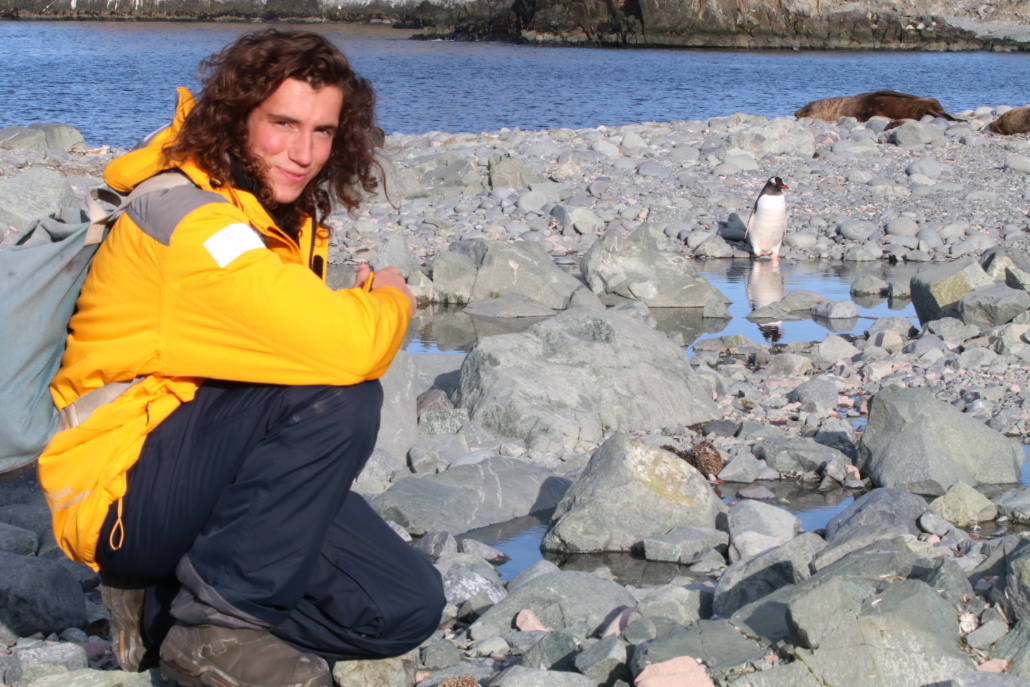 Marcus Waters/Antarctic Heritage Trust
Marcus Waters/Antarctic Heritage Trust Anzac appreciating the wildlife
Another University of Canterbury student, Anzac Gallate (19) who is studying Geography and Environmental Science, says the historic explorers were also on his mind during the expedition, with the experience sparking his own passion for exploration. “I’ve realised how important it is for me to continue to incorporate exploration into my life. The trip certainly has left me plotting and scheming as to what the next adventure might be. I also really enjoyed working as part of the team.”
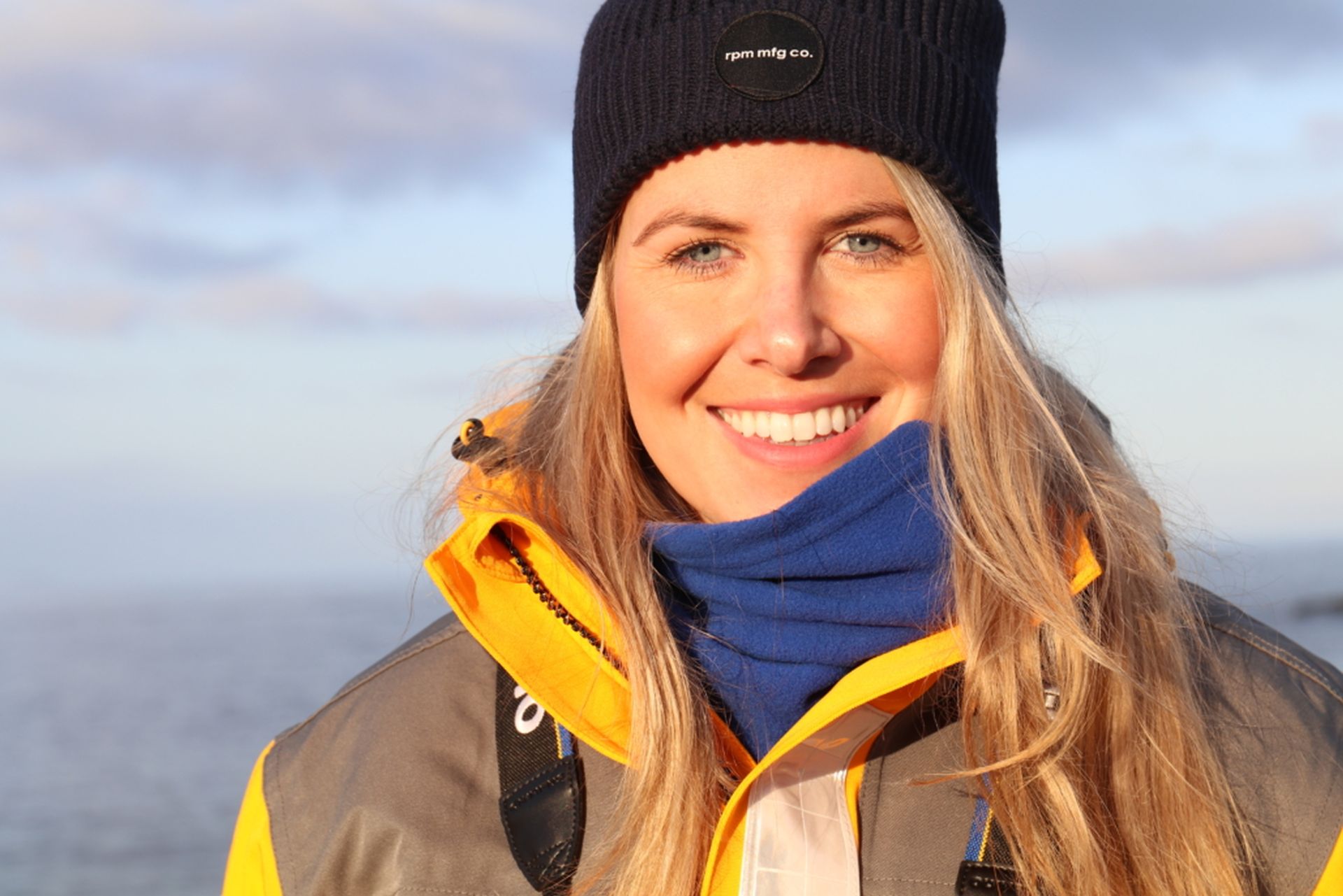 Marcus Waters/ Antarctic Heritage Trust
Marcus Waters/ Antarctic Heritage Trust Laurette in Antarctica
“Surreal” was the word used by Laurette Siemonek (in her mid-20s) who is a senior policy analyst for the Ministry of the Environment to describe her feelings of being in Antarctica. “As I scanned my surroundings, I saw mountains covered with glistening snow and ice, playful Gentoo penguins, and there was even a Minke whale breaching the surface between icebergs not far from shore. I’ll never forget the feeling of absolute privilege and awe that I had in that moment.”
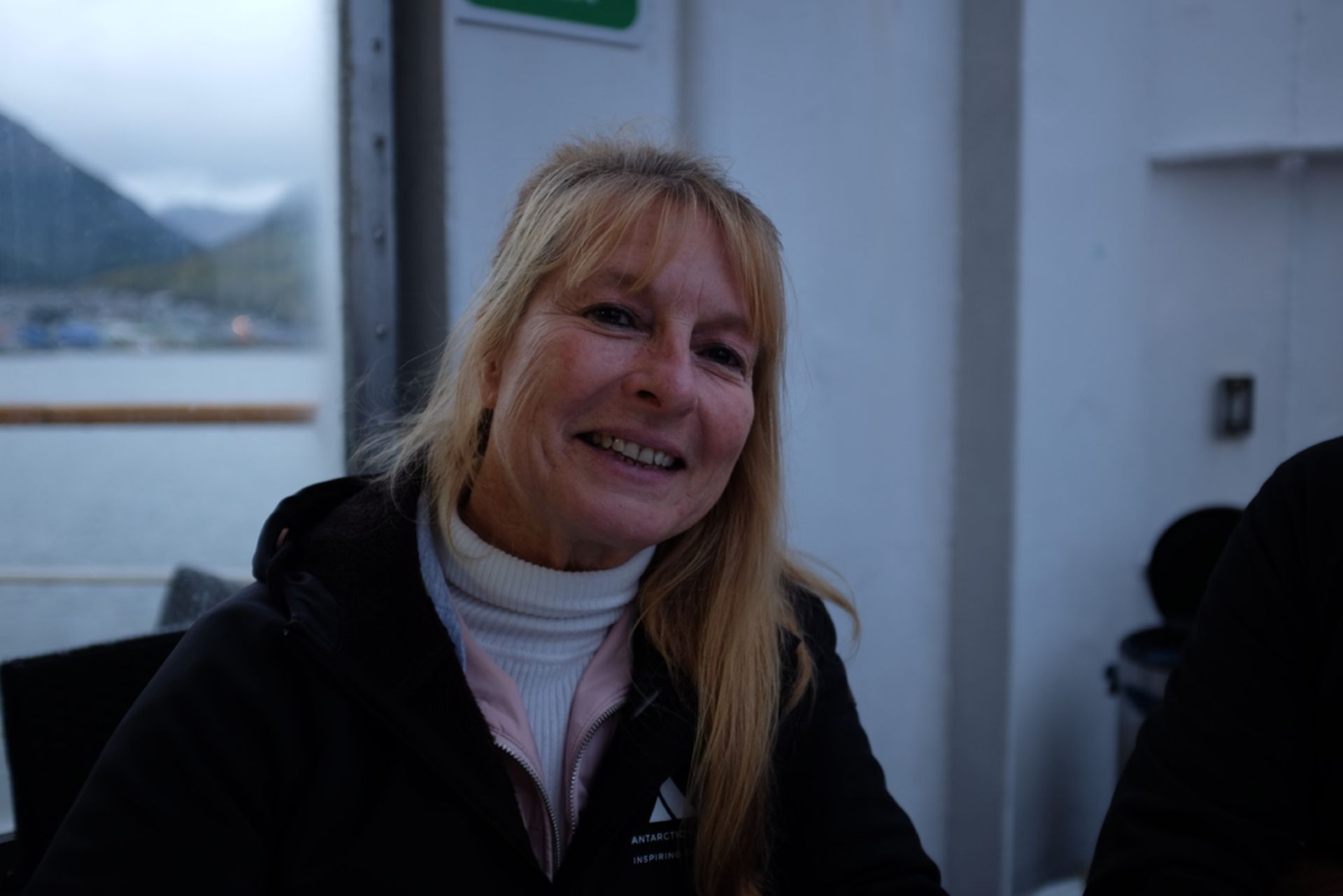 Bill Bishop/ Antarctic Heritage Trust
Bill Bishop/ Antarctic Heritage Trust Sir Edmund Hillary Collegiate Deupty Vice Principal Shauna
Also selected to join the adventure were two South Auckland students, Jaylee Savage and A’aifou Potemani from Sir Edmund Hillary Collegiate, and their Deputy Principal, Shauna Eldridge. “It was amazing to watch Jaylee and A’aifou grow during the expedition, and to support them to push through personal boundaries and fears as they stepped into an environment that was utterly unfamiliar to them,” says Shauna.
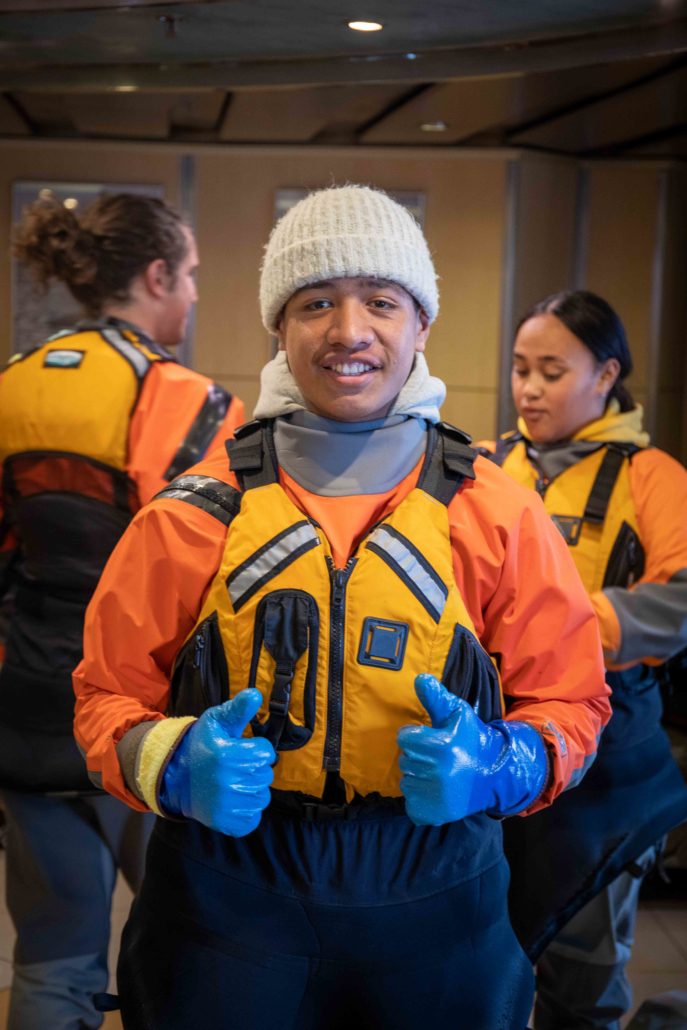 Antarctic Heritage Trust
Antarctic Heritage Trust A’aifou getting fitted in his kayaking gear
This personal growth culminated in them leading an incredible haka, performed for the other guests on their final night on the ship. A’aifou says, “The haka was something to bring us together and make us feel comfortable hearing about the virus. It made us stronger.”
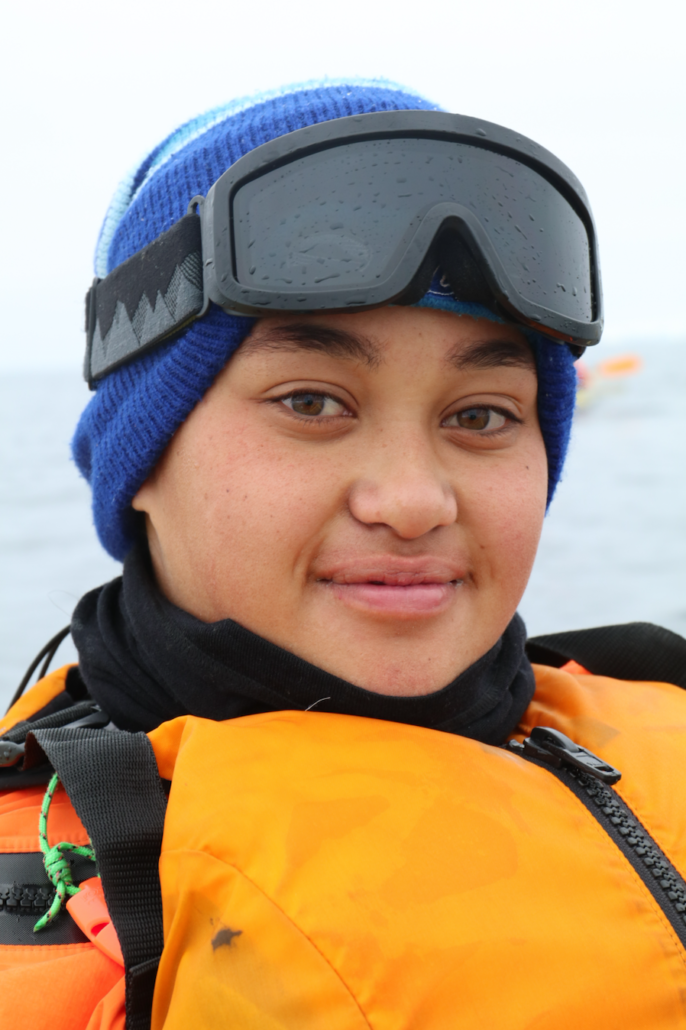 Antarctic Heritage Trust
Antarctic Heritage Trust Inspiring Explorer Jaylee
Jaylee had the idea for the haka as a way to say thank you to the “polite, fun and cheerful” crew members on board the ship. “The team thought it was a great idea, so we researched which haka would send the correct message and had a couple of practises each night in private.” Before the haka, Jaylee introduced herself, her culture and the meaning behind the haka to the audience. “I was so proud of how it all came together. The team did an amazing job – I was very proud of my students! It also lifted my spirits to get the comments from the other passengers on the ship. Some of them had watched us practise and said it was inspiring to see A’aifou and I, as the babies of the group, taking charge and teaching the other team members. It definitely boosted my confidence.”


